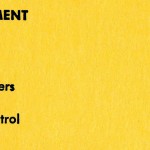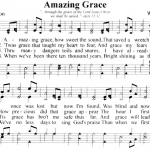I’m looking forward to hearing Eve Tushnet speak about her book, Gay and Catholic: Accepting My Sexuality, Finding Community, Living My Faith, tonight at the Catholic Information Center in DC. And that means it seems like a good time to blog about her book one more time.
In November, I hosted a book club for Eve’s book, and a lot of our discussion was focused on Eve’s expansive use of the word “vocation” and how this more generous concept could inform our lives. In the most restrictive (and fairly common) sense, a vocation is a three question multiple choice quiz about vows you might make. Will you commit your life to…
- God alone (ordination/monasticism)
- Another person (marriage)
- Neither (everyone else)
Eve’s identity as a lesbian kiboshed door number two for her, and her own discernment/self-knowledge ruled out door number one. So her book winds up being a salutary read for anyone who finds themselves looking at door number three (or who knows someone else who is) and wants a guide for how to offer and receive love outside the traditions of marriage and monasticism.
I strongly recommend the book (including to people who match neither of the titular adjectives) and I said a bit more about why here. But, for today, I want to touch on one part of Eve’s “DVD extras” for her books (additional supplemental content) that kind of confused me.
In one of these essays (“Vocation as the next right thing”) she cautions readers not to be more focused on choosing the name for their vocation than the small, quotidian actions that will help them walk their path well now.
For all of our vocations it may help to ask, What is the next right thing? Not the right thing fifty years from now, or the right thing next week, but the right thing right now? Doing the right thing right now may have lifelong repercussions (that second line comes up on the pregnancy test…) and it may mean making promises, such as marriage, which are binding for life. It may mean considering the future.
But often the “next right thing” is something you can do when the future seems totally open and unknown. You can call your best friend now, without vowing to be BF literally F. You can love others, and even if those particular relationships don’t last or you change your mind about how best to express your love, the love itself wasn’t wasted.
You don’t have to ask yourself, “Can I really be celibate forever?” You just need to ask, “Can I love in the way God is calling me to love for, like, the next five minutes?” And then in five minutes you do it again. If at any point you know you didn’t do the “next right thing”–if you skipped steps or wandered off the path–then the “next right thing” is to repent and return, teshuvah, come back to Jesus’ breast and His embrace. Over time this becomes a lasting yes to God, an acceptance of vocation (including the call to repentance, which is a part of everyone’s vocation), one five-minute stretch at a time.
I like all of this advice a lot. It can be pretty tempting to ruminate on “Who am I? What should I do (in the future)?” while losing sight of “What should I do (right now)?” And, often, it’s easier for me to look back at the choices I’m making now to decide how I should alter the course of my life, than it would be to armchair philosophize my way through discernment. I share Eve’s opinion that you can learn a lot about what you should be doing (in general) by auditing what you’re doing now, and seeing what brings a sense of consolation, what you would keep making time for, what makes you most yourself-as-you-think-you-ought-to-be (this is also my heuristic for dating).
I just find it weird to put some of this very micro, do the thing in front of you, thinking under the heading of “vocation.” It took a while for me to put my finger on what I felt was being left out, but, ultimately, I think I find the idea of vocation most helpful when it includes some kind of deliberate commitment or rootedness. Something along the lines of The Last 5 Year’s “This is the life I choose- / This is the thing I can’t bear to lose / Trip us or trap us, but we refuse to fall.”
There’s a lightness to “next right thing” thinking, which I think has a lot of salutary effects — it leaves you open to the chance to do good that you don’t think of as being part of your spiritual “job.” It just all seems orthogonal to vocation. I can imagine a “do the next right thing” way of life (it seems cousin to a mendicant order) but that kind of radical openness to circumstance is usually consciously chosen by the mendicant monks. There’s a reason, after all, that marriage and monasteries require vows. The quiet, quotidian choosing, without a larger structure in place, seems more like it falls under the heading of charisms.
Charism is generally the word that Catholics use to talk about general dispositions or talents. Thus, someone might have a charism toward Capon’s “fat motherhood” but that inclination might be expressed differently in different seasons of life (cf my friends who have no children (yet!) but open their home for boardgames and general “thereness” every weekend).
I love the way Eve’s book expands the menus of vocations, but I find myself still wanting to reserve the word for the ways of life that look a little more covenantal, even if the first steps toward that promise are a little more contingent.












